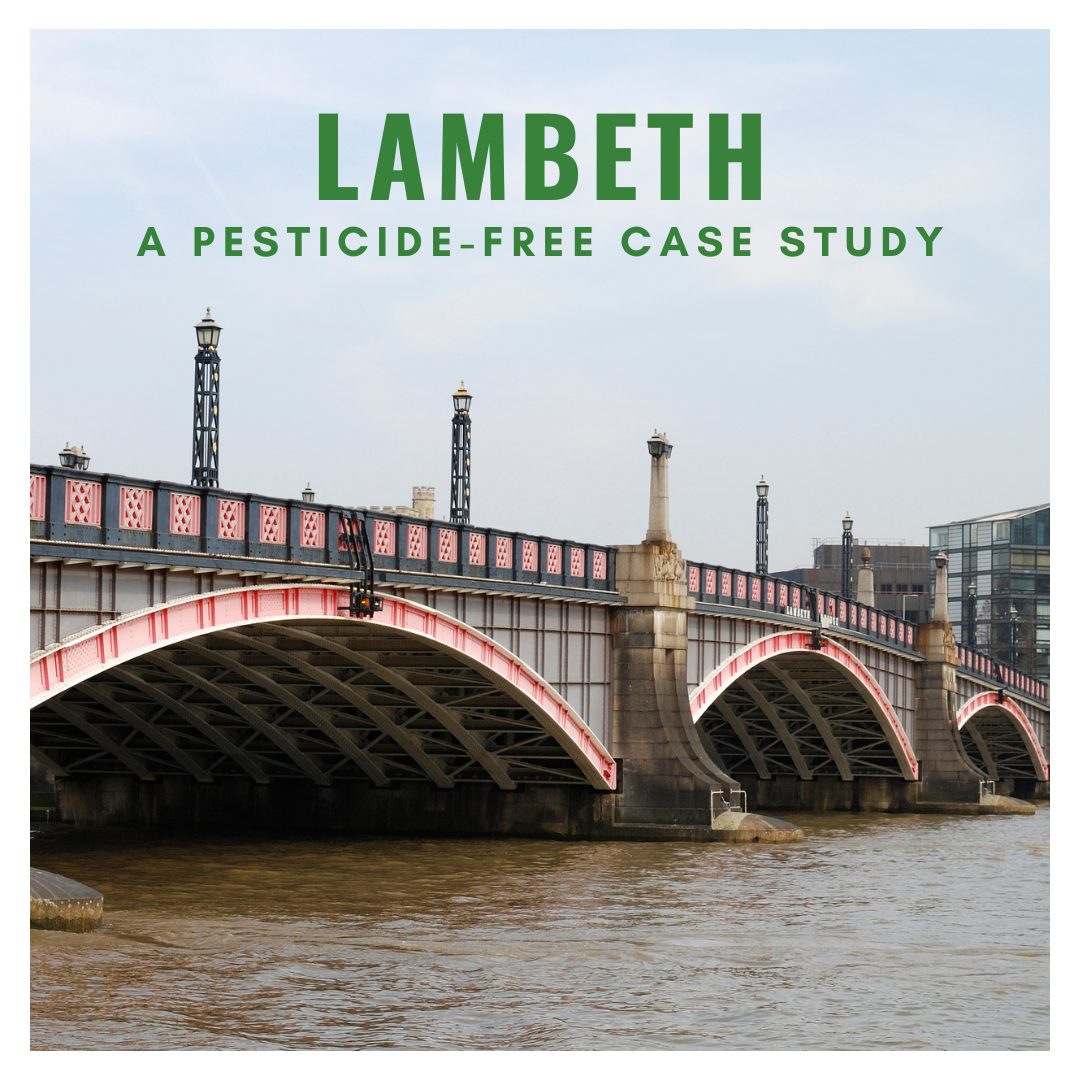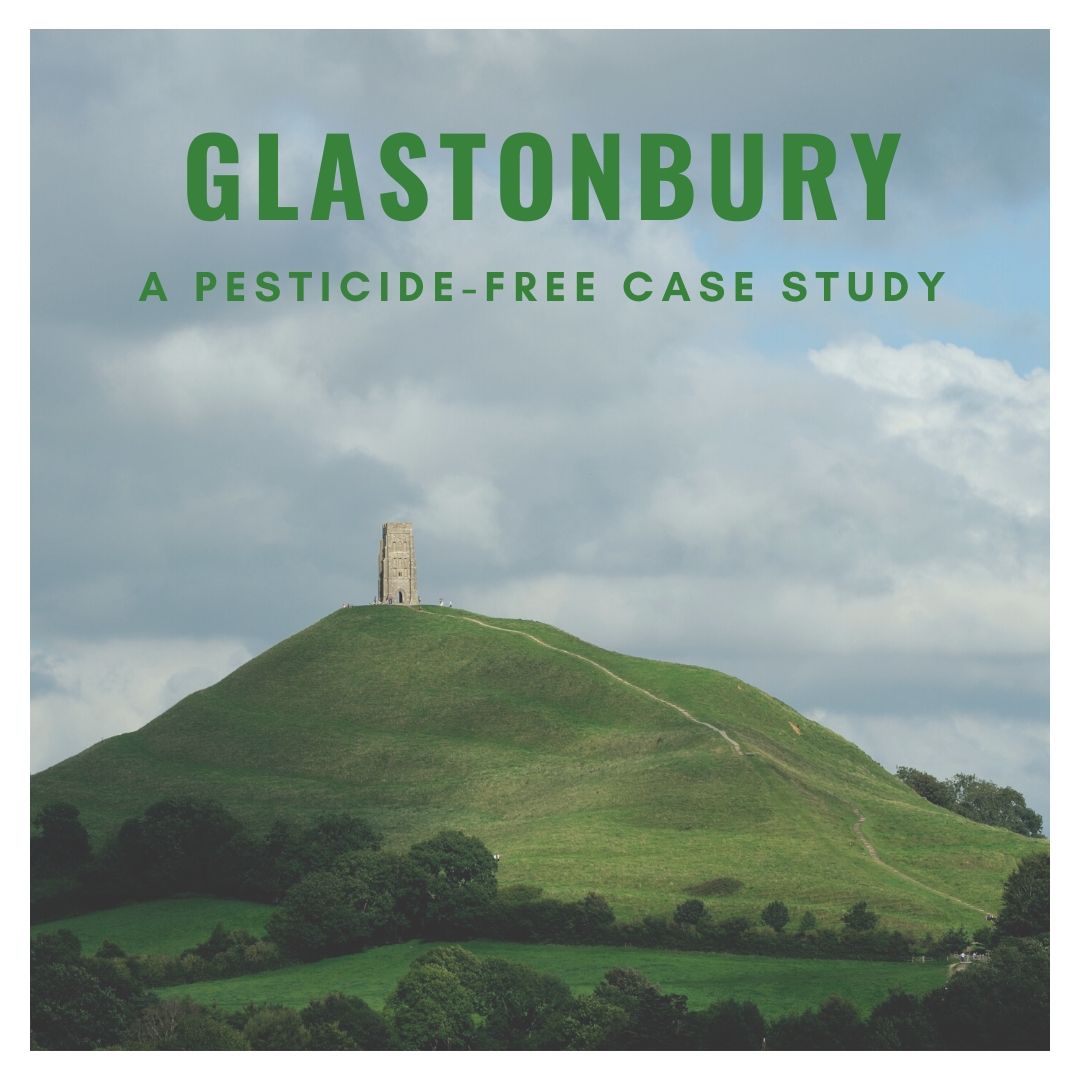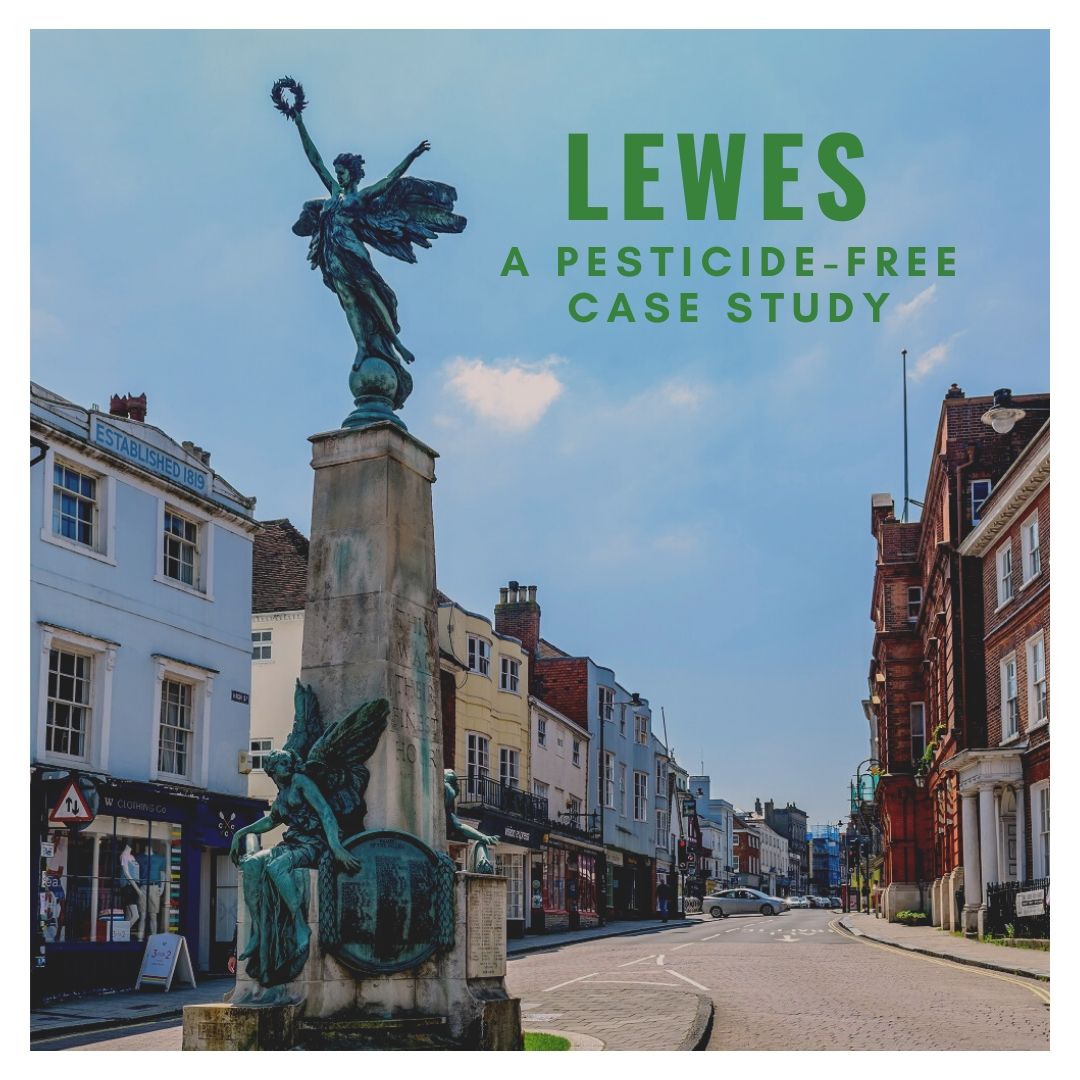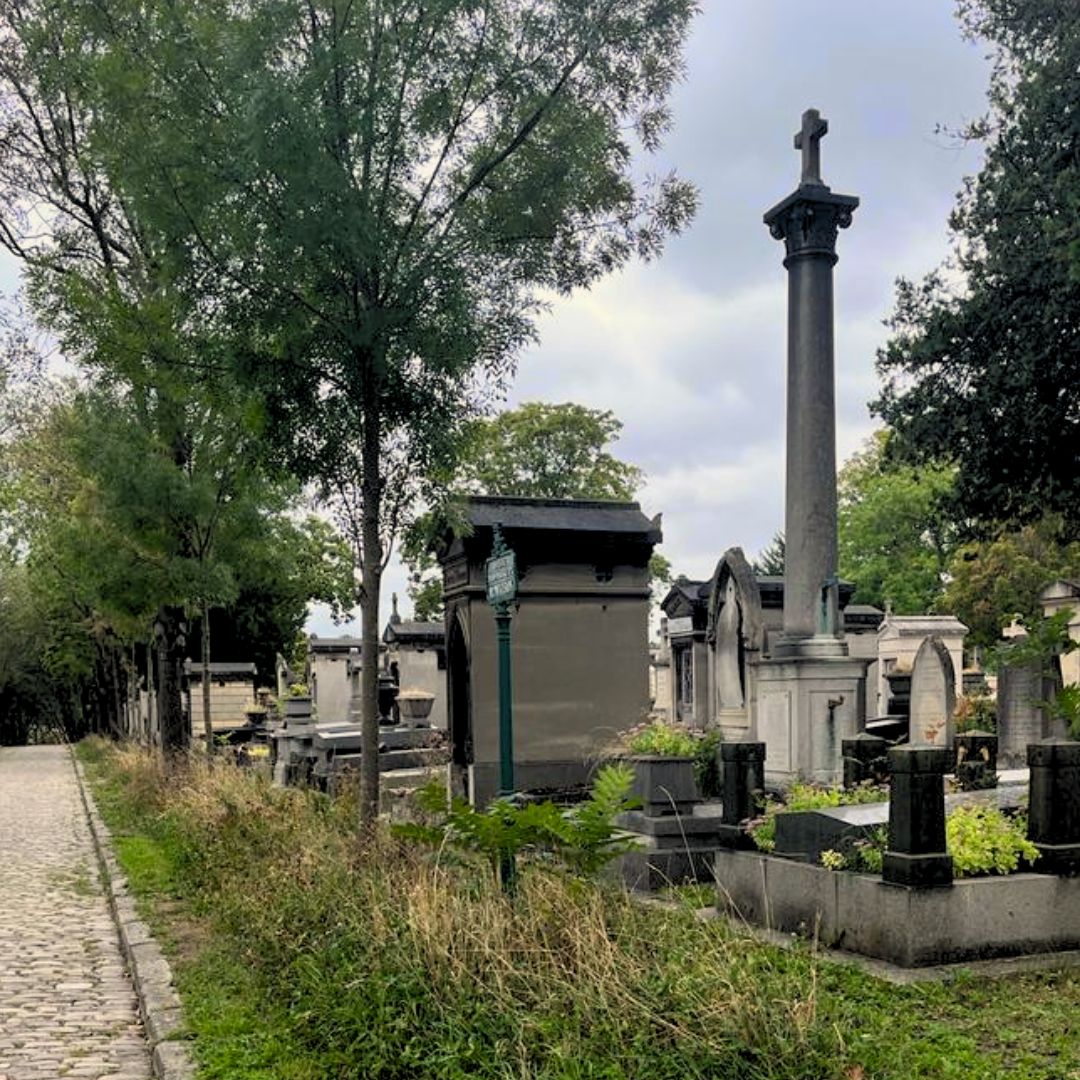Pere Lachaise: A pesticide-free cemetery in Paris
The iconic Pere Lachaise Cemetery is the largest green space in inner city Paris, with 44 hectares and 5,000 trees to manage. It is the most visited cemetery in Paris and used to be a heavily paved space, full of paths and roads to allow for the thousands of mourners and tourists that visit all-year round. Now, thanks to a national ban on the amenity use of pesticides, this urban green space is managed without the use of herbicides, insecticides and fungicides and the wildlife that now flourishes there is an extra bonus for all those that visit.
Pesticides and/or glyphosate bans or phase-out commitments around the UK
- Glastonbury, Somerset – June 2015 – Banned the use of glyphosate and moved to pesticide free methods. The first UK council to do so. Read more here.
- Erewash, Derbyshire – October 2015 – Banned the use of glyphosate and moved to pesticide free methods.
- Wadebridge, North Cornwall – March 2016 – Banned the use of glyphosate and moved to pesticide free methods. Read more here.
- Hammersmith & Fulham, London – June 2016 – Banned the use of glyphosate and moved to pesticide free methods. The first London Borough to do so. Read more here. Read more here.
- Lewes District, East Sussex – June 2017 – Committed to a 6 month glyphosate phase out period trialling alternatives. Partnered with contractor to buy Foamstream. Read more here.
- Cowes, Isle of Wight – March 2018 – Banned the use of glyphosate and moved to pesticide free methods. Read more here.
- Frensham, Surrey – September 2018 – Banned the use of glyphosate and moved to pesticide free methods. Read more here.
- Peterlee, Durham – December 2018 – banned glyphosate from all land they managed and replaced with strimming 3 times a year. Read more here.
- Shaftesbury, Dorest – February 2019 – Banned the use of glyphosate and moved to pesticide free methods. Read more here.
- Trafford, Manchester – March 2019 – Committed to a one-year glyphosate phase out period trialling alternatives. Read more here.
- Cambridge, Cambridgeshire – May 2019 – Banned the use of herbicides in all the parks and open spaces. They have passed a statement of intent to explore herbicide-free alternatives for weed control in two wards before the next spraying season of this year (September 2021), with the view to stopping all herbicide-use across the city by the end of 2022. Read more here.
- Midlothian, Scotland – April 2021 – Retracted their disappointing decision to re-allow glyphosate use thanks to local residents contesting and offering to hand-weed the concerned areas. Read more here.
- Highland, Scotland – June 2019 – Banned the use of glyphosate in all sports, recreation facilities and play grounds and schools and moved to pesticide free methods. Read more here.
- Lyme Regis, Dorset – July 2019 – Banned the use of glyphosate and moved to pesticide free methods. Read more here.
- Greater London Authority – July 2019 – Passed a Motion calling for the end of the use of glyphosate and other herbicides on the all GLA controlled areas including TfL. Read more here.
- Frome, Somerset – September 2019 – Banned the use of glyphosate and moved to pesticide free methods. Read more here.
- Chichester, West Sussex – September 2019 – Committed to phasing out pesticides and trialling alternatives. Read more here.
- Colchester, Essex – November 2019 – Committed to a glyphosate phase out period trialling alternatives. Read more here.
- Derry, Londonderry – November 2019 – Committed to phasing out glyphosate and trialling alternatives.
- Folkestone & Hythe, Kent – November 2019 – Committed to a one-year glyphosate phase out period trialling alternatives. Read more here.
- Shetland, Scotland – January 2020 – Banned the use of glyphosate and moved to pesticide free methods. Read more here.
- Petersfield, Hampshire – February 2020 – Committed to phasing out pesticides and trialling alternatives. Read more here.
- Lambeth, London – April 2020 – The use of glyphosate for routine weed management is now banned across all parks and open spaces and on Lambeth housing estates, as well as to treat weed growth in tree pits across the borough. On top of this, the council has cut its use to treat weeds on streets by a third and continues to trial alternative methods, thanks to residents weeding their streets by hand. Read more here.
- Faversham, Kent – May 2020 – Committed to phasing out pesticides and trialling alternatives. Read more here.
- Hexham, Northumberland – June 2020 – Banned the use of glyphosate and moved to pesticide free methods. Read more here.
- Hadleigh, Suffolk – June 202o – Passed a motion to immediately cease the use pesticides, especially glyphosphate-based herbicides within the Town Council’s managed land and implement alternative natural methods of weed and pest control. Read more here.
- Balerno, Edinburgh – July 2020 – Committed to a two-year glyphosate phase out period trialling alternatives. Read more here.
- Wirral, Liverpool – August 2020 – Committed to phasing out pesticides and trialling alternatives. Read more here.
- Waverley, Surrey – October 2020 – Committed to a three-year glyphosate phase out period trialling alternatives. Read more here.
- Warminster, Wiltshire – March 2021 – The council’s climate change declaration and pesticide policy aims to stop using pesticides by phasing them out and finding suitable alternatives. Read more here.
- Manningtree, Tendring, Essex – April 2021 – Banned all pesticides and turned to community hand-weeding. Read more here.
- Bilbrook, South Staffordshire – April 2021 – Council has agreed to stop spraying in all open spaces – not passed a motion, just verbal agreement.
- Reading, Berkshire – June 2021 – Have been reducing its pesticide use over the past years and is trialling alternatives in the next growing season 2022 in view of completely phasing-out their use. Read more here.
- Bath and North East Somerset – July 2021 – Approved a permanent ban on the use of glyphosate weedkiller and are trialling alternatives to control street weeds in the Council area. Read more here.
- Renfrewshire, Scotland – October 2021 – Made the decision to phase out the use of glyphosate entirely and trial alternatives in playparks and schools to protect children and pets from possible harmful effects, over the next two to three years. Read more here.
- Guildford, Surrey – December 2021 – Passed a motion (with cross party support) to become a pesticide free town following a three-year phase-out plan and will also be collaborating on the phasing-out of pesticide use with Surrey County Council and Waverley Borough Council (who have already adopted a similar policy). Read more here.
- Chelmsford, Essex – December 2021 – Phased-out the use of pesticides on the land they manage, aside from exceptional applications on invasive species, but the highways are still sprayed as they are managed by Essex County Council.
- East Devon, Devon – April 2022 – Phasing-out the use of all weed killers by September 2022 on all council-managed land which includes the paths and pavements in schools, parks, gardens, playgrounds and hospitals. These will now be managed using a combination of a vinegar solution, manual weeding and two ‘hot foam’ weed control machines. Read more here.
- Marlow, Buckinghamshire – May 2022 – Have become a bee town with a pollinator policy which includes running trials to end the use of glyphosate on the land they manage, and working with local agencies/ landowners, places of worship, community growing groups, allotments etc. to adopt the same approach. Read more here.
- Chipping Norton, Oxfordshire – June 2022 – Have approved a new three-year pesticide phase-out strategy. This includes reducing and ultimately ending the use of all pesticides on Council-managed land; bringing in other local stakeholders to follow suit, and finding ways to help and encourage residents to adopt a pesticide-free approach at home. Read more here.
- Worthing, West Sussex – July 2022 – Passed a Glyphosate-Free Motion and will start phasing out glyphosate from pavements, promenade and parks in an 18 month period. Read more here.
- Newcastle, Tyne and Wear – July 2022 – Pledged to phase-out pesticides over five years after declaring a biodiversity emergency and committing to protecting and restoring the city’s parks and green spaces. Read more here.
- Portsmouth, Hampshire – July 2022 – Passed a Motion and adopted a three-year phase out plan for all pesticides, and will be running a range of non-chemical and mechnical alternativs for weed treatment and management over the next six months. Read more here.
- Westminster, London – October 2022 – Have banned glyphosate on all their managed outdoor space, using the high footfall and regular brushing for street management, and alternatives to manage parks and estates. This is one of several methods they have adopted to improve green spaces and encourage native wildlife to flourish in Westminster. Read more here.
- West Suffolk District, Suffolk – December 2022 – Have announced they are to stop the general use of glyphosate from April 2023 to help protect wildlife and the environment. They have attributed an extra £20,000 to their budget to adopt alternatives, and are encouraging residents to accept more weeds. Read more here.
- Berwick-upon-Tweed, Northumberland – December 2022 – Resolved to require all staff and contractors not to use pesticides on the property they manage, and encourage other land managers in the town to phase-out their use. Read more here.
- Devon County, England – January 2023 – Announced they no longer treat weeds for aesthetic reasons, such as being unsightly. Read more here.
- Flintshire County, Wales – November 2023 – Have committed to end their use of glyphosate and have invested in a Foamstream machine to manage unwanted plant growth. Read more here.
- Newton Abbot, Devon – January 2024 – Announced they will be phasing-out pesticides and have invested in a hot foam machine, as well as adopting pollinator friendly measures. Read more here.




